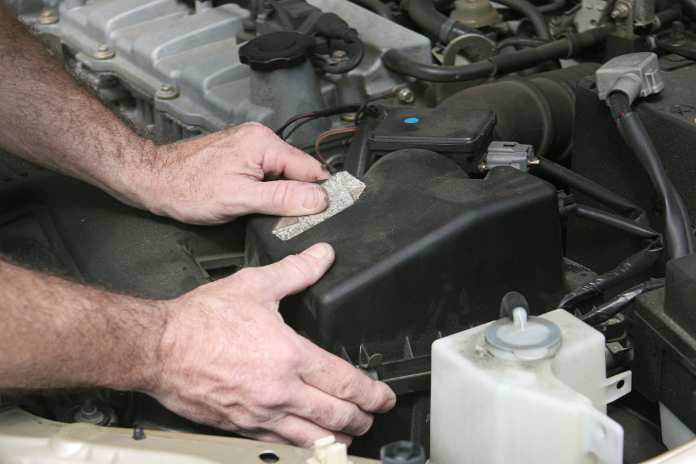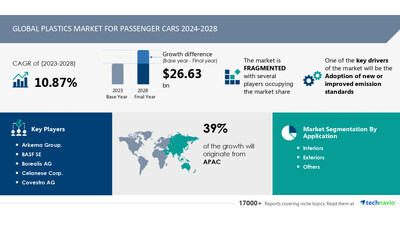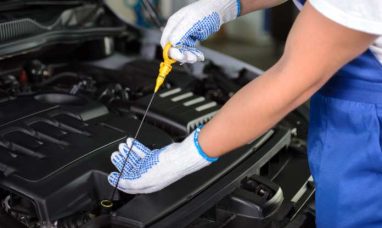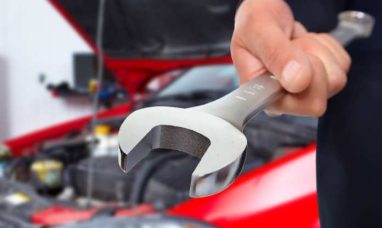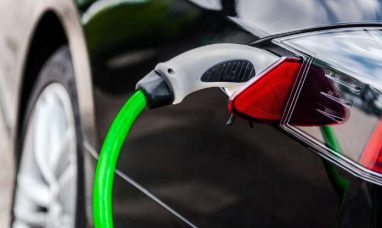NEW YORK, Nov. 8, 2024 /PRNewswire/ — Report on how AI is driving market transformation – The global plastics for passenger cars market size is estimated to grow by USD 26.63 billion from 2024-2028, according to Technavio. The market is estimated to grow at a CAGR of about 10.87% during the forecast period. Adoption of new or improved emission standards is driving market growth, with a trend towards lightweight and fuel efficiency of automotives like passenger cars. However, complex design and engineering of modern vehicles poses a challenge. Key market players include Arkema Group., BASF SE, Borealis AG, Celanese Corp., Covestro AG, Daicel Corp., Dow Chemical Co., DuPont de Nemours Inc., Evonik Industries AG, Hexion Inc., Koninklijke DSM NV, LG Chem Ltd., LyondellBasell Industries N.V., Nissan Motor Co. Ltd., Saudi Basic Industries Corp., SGL Carbon SE, Solvay SA, Sumitomo Corp., Teijin Ltd., and Toray Industries Inc..
AI-Powered Market Evolution Insights. Our comprehensive market report ready with the latest trends, growth opportunities, and strategic analysis- View Free Sample Report PDF
|
Forecast period |
2024-2028 |
|
Base Year |
2023 |
|
Historic Data |
2017 – 2021 |
|
Segment Covered |
Application (Interiors, Exteriors, and Others), Material (Polypropylene, Polyurethane, Polyvinyl chloride, and Polyamide and others), and Geography (APAC, North America, Europe, South America, and Middle East and Africa) |
|
Region Covered |
APAC, North America, Europe, South America, and Middle East and Africa |
|
Key companies profiled |
Arkema Group., BASF SE, Borealis AG, Celanese Corp., Covestro AG, Daicel Corp., Dow Chemical Co., DuPont de Nemours Inc., Evonik Industries AG, Hexion Inc., Koninklijke DSM NV, LG Chem Ltd., LyondellBasell Industries N.V., Nissan Motor Co. Ltd., Saudi Basic Industries Corp., SGL Carbon SE, Solvay SA, Sumitomo Corp., Teijin Ltd., and Toray Industries Inc. |
Key Market Trends Fueling Growth
The Plastics For Passenger Cars market is witnessing significant trends in various sectors. In the automotive industry, plastics are replacing metals, glass, and wood for making automotive parts due to their lightweight and cost-effective properties. Plastic resins like Polystyrene (PS), Polyethylene (PE), Polypropylene (PP), and engineering plastics are popular choices. PET is dominating the packaging sector, while PVC and PVC-based materials are used in making face masks, goggles, shields, gloves, and respirators during the pandemic. The building & construction industry is also adopting polymers for making components due to their thermal and mechanical properties. The use of circular polymers, such as those produced by Iber Resinas and CirculenRenew polymer, is increasing as part of the circular economy. The trend towards metal substitution is driven by carbon emissions reduction and petrochemical and crude oil price fluctuations. Technological advancements in injection molding, thermoforming, and blow molding are enabling the production of complex shapes and designs. The use of bioplastics derived from renewable sources like corn starch, vegetable oil, food waste, and sawdust is also gaining popularity due to their eco-friendly nature.
The automotive industry is focusing on producing lighter vehicles to enhance fuel efficiency and decrease emissions. Plastics are a key contributor to this trend due to their lightweight properties, enabling the replacement of heavier materials like metal. Advanced plastics and composites are being utilized in passenger cars to reduce vehicle weight, without jeopardizing safety or performance. Consumer awareness regarding climate change and the need to minimize carbon emissions has influenced purchasing decisions. Many buyers now prioritize fuel-efficient vehicles with lower pollutant emissions. In response, passenger cars are adopting lightweight materials and technologies to improve fuel economy.
Insights on how AI is driving innovation, efficiency, and market growth- Request Sample!
Market Challenges
- The Plastics For Passenger Cars market faces several challenges in the automotive industry. Traditional materials like Glass, Metals, and Wood are being replaced by Plastics and their resins such as Polystyrene (PS), Polyethylene (PE), Polypropylene (PP), Polybutylene terephthalate (PBT), Polyphenylene oxide (PPO), Polyurethane (PU), Polyvinyl chloride (PVC), Polyethylene terephthalate (PET), Polycarbonate (PC), Polysulfone (PSU), Polyamide (PA), Polyphenylsulfone (PPSU), and Polypropylene. The use of plastics in Automotive parts, Toys, and Industrial components is increasing due to their lightweight, cost-effective, and excellent mechanical and thermal properties. However, the market faces challenges from rising Petrochemical prices and Crude oil prices. The demand for Circular Polymers made from renewable sources like corn starch, vegetable oil, food waste, and sawdust is growing due to environmental concerns and the need for reducing Carbon emissions. Technological advancements in Injection molding, Thermoforming, and Blow molding are driving the market forward. The Building & construction industry also uses various polymers for making components. The current situation has led in demand for engineering plastics in sectors like face masks, goggles, shields, gloves, and respirators. Iber Resinas and CirculenRenew polymer are key players in this market. The future of Plastics For Passenger Cars lies in the use of Circular Polymers and Metal substitution.
- In the automotive industry, passenger cars now demand intricate designs to accommodate advanced features, connectivity, and safety systems. Plastic components must fit perfectly within the vehicle structure while meeting specific functional requirements. However, designing and engineering these complex plastic parts involves creating intricate molds and tooling, which can be time-consuming and costly. Complex geometries, fine details, and stringent tolerances increase the complexity of tooling and production setup. Overcoming these challenges necessitates advanced engineering capabilities and close collaboration between automakers and plastic suppliers. Specialized tooling and manufacturing processes are often required for producing complex plastic components. Despite the high initial investment and long lead times for tooling, many manufacturers embrace plastics for their lightweight, durable, and cost-effective properties.
Insights into how AI is reshaping industries and driving growth- Download a Sample Report
Segment Overview
This plastics for passenger cars market report extensively covers market segmentation by
- Application
- 1.1 Interiors
- 1.2 Exteriors
- 1.3 Others
- Material
- 2.1 Polypropylene
- 2.2 Polyurethane
- 2.3 Polyvinyl chloride
- 2.4 Polyamide and others
- Geography
- 3.1 APAC
- 3.2 North America
- 3.3 Europe
- 3.4 South America
- 3.5 Middle East and Africa
1.1 Interiors- The interiors of passenger cars primarily use plastics due to their desirable properties such as high thermal stability, scratch resistance, and high strength. Automotive Original Equipment Manufacturers (OEMs) prioritize plastics that offer UV stability, good sound absorption, color retention, and low emissions for enhanced interior quality. Extensively used areas include instrument panel clusters, glove boxes, door panels, overhead consoles, center and fascia consoles, lower and back seat trims, folding tables, inner safety seat parts, and speaker consoles. In a competitive market, passenger car manufacturers focus on offering better value to customers by incorporating features like climate-control systems and cup holders. Advanced plastics and processing technologies are utilized to create superior components. For instance, FOMPAK, a leading automotive foam and interior trim components manufacturer, offers PVC-coated dashboards and glove compartments using techniques like automated gluing, plasma cutting, thermoforming, laser cutting, and vibration and ultrasonic welding. These trends are driving the demand for plastics in passenger car interiors, fueling the growth of the interiors segment in the global plastics market for the passenger cars industry.
Download complimentary Sample Report to gain insights into AI’s impact on market dynamics, emerging trends, and future opportunities- including forecast (2024-2028) and historic data (2017 – 2021)
Research Analysis
The Plastics For Passenger Cars market is a significant segment of the automotive industry, with plastics becoming an increasingly popular material choice due to their lightweight, durability, and cost-effectiveness. Plastics offer various advantages over traditional materials like glass, metals, wood, and natural rubber. Plastic resins, including Polystyrene (PS), Polyethylene (PE), Polypropylene (PP), Polybutylene terephthalate (PBT), Polyphenylene oxide (PPO), Polyurethane (PU), Polyvinyl chloride (PVC), Polyethylene terephthalate (PET), Polycarbonate (PC), Polysulfone (PSU), Polyamide (PA), Polyphenylsulfone (PPSU), and others, are extensively used in car manufacturing. The raw materials for these plastics are primarily derived from petroleum and natural gas but are increasingly sourced from renewable sources such as bioplastics, corn starch, vegetable oil, food waste, and sawdust. These eco-friendly alternatives are gaining traction due to growing environmental concerns and regulatory pressures.
Market Research Overview
The Plastics For Passenger Cars market encompasses a wide range of applications for various types of plastics in the automotive industry. Plastics, including polyethylene (PE), polypropylene (PP), polystyrene (PS), and others like polycarbonate (PC), polyphenylene oxide (PPO), and polyurethane (PU,) are used extensively in automotive parts due to their lightweight, cost-effective, and superior mechanical and thermal properties. These plastics replace traditional materials such as glass, metals, wood, and natural rubber in various applications. Plastic resins like PET, PVC, PBT, and PET are used in the packaging sector, while engineering plastics like PA, PSU, and PPSU are used in industrial components. The use of plastics in the automotive industry contributes to reducing carbon emissions by improving fuel efficiency and reducing the weight of vehicles. The Plastics For Passenger Cars market is influenced by various factors such as petrochemical prices, crude oil prices, and technological advancements. The market also includes the use of renewable sources like bioplastics derived from corn starch, vegetable oil, food waste, sawdust, and other sources. The building & construction industry also uses plastics for insulation and other applications. During the COVID-19 pandemic, the demand for plastics in the production of face masks, goggles, shields, gloves, and respirators increased significantly. The market for plastics in the automotive industry is expected to grow due to the increasing trend towards metal substitution and the use of circular polymers. Companies like Iber Resinas and CirculenRenew Polymer are leading the way in the production of circular polymers, which are recycled and reused, reducing the dependence on crude oil and natural gas.
Table of Contents:
1 Executive Summary
2 Market Landscape
3 Market Sizing
4 Historic Market Size
5 Five Forces Analysis
6 Market Segmentation
- Application
- Interiors
- Exteriors
- Others
- Material
- Polypropylene
- Polyurethane
- Polyvinyl Chloride
- Polyamide And Others
- Geography
- APAC
- North America
- Europe
- South America
- Middle East And Africa
7 Customer Landscape
8 Geographic Landscape
9 Drivers, Challenges, and Trends
10 Company Landscape
11 Company Analysis
12 Appendix
About Technavio
Technavio is a leading global technology research and advisory company. Their research and analysis focuses on emerging market trends and provides actionable insights to help businesses identify market opportunities and develop effective strategies to optimize their market positions.
With over 500 specialized analysts, Technavio’s report library consists of more than 17,000 reports and counting, covering 800 technologies, spanning across 50 countries. Their client base consists of enterprises of all sizes, including more than 100 Fortune 500 companies. This growing client base relies on Technavio’s comprehensive coverage, extensive research, and actionable market insights to identify opportunities in existing and potential markets and assess their competitive positions within changing market scenarios.
Contacts
Technavio Research
Jesse Maida
Media & Marketing Executive
US: +1 844 364 1100
UK: +44 203 893 3200
Email: [email protected]
Website: www.technavio.com/
![]() View original content to download multimedia:https://www.prnewswire.com/news-releases/plastics-for-passenger-cars-market-to-grow-by-usd-26-63-billion-from-2024-2028–as-stricter-emission-standards-drive-revenue-with-ai-powered-market-evolution—technavio-302299356.html
View original content to download multimedia:https://www.prnewswire.com/news-releases/plastics-for-passenger-cars-market-to-grow-by-usd-26-63-billion-from-2024-2028–as-stricter-emission-standards-drive-revenue-with-ai-powered-market-evolution—technavio-302299356.html
SOURCE Technavio

Featured Image: Megapixl @ Lisafx









